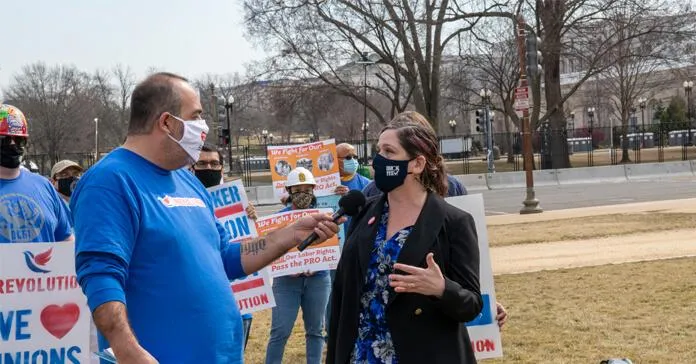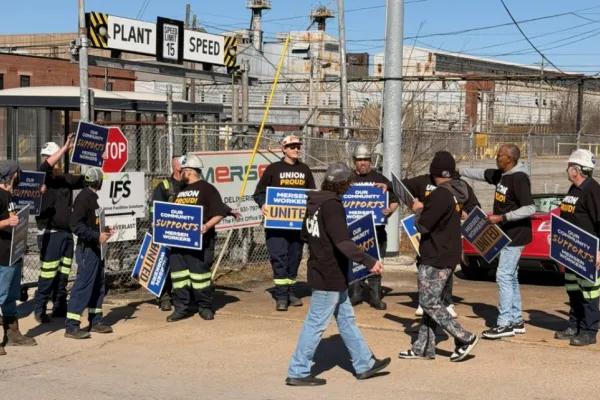House Passes PRO Act to Expand Worker Power

On Tuesday, with bipartisan support, the U.S. House passed the Protecting the Right to Organize (PRO) Act, one of CWA's top priorities for building worker power. The PRO Act would be a game-changer for millions of workers by making it easier to join unions, win first contract agreements, and engage in more powerful strikes.

CWA Secretary-Treasurer Sara Steffens spoke in support of the PRO Act at a rally hosted by Our Revolution in Washington, D.C., on Tuesday.
President Biden has said he will sign the PRO Act as soon as it lands on his desk, making the fight in the U.S. Senate the key to giving working people the tools they need to regain power in their workplaces. While the PRO Act also passed the House during the most recent Congress, CWA activists did not take Tuesday's vote for granted. They worked tirelessly to make sure CWA members contacted their members of Congress about the importance of the bill. Their efforts paid off – not only did the bill pass, but three members of Congress who voted against the bill in 2020 voted for it this time.
"It's not just the laws about organizing a union that give too much power to management. It's also the laws that are supposed to protect workers when we bargain a contract or go on strike," said CWA Secretary-Treasurer Sara Steffens at a rally hosted by Our Revolution in Washington, D.C., on Tuesday in support of the bill. "The PRO Act changes that."
Watch a replay of Tuesday's rally here.
The PRO Act is just part of CWA's agenda to build worker power, which includes ending the filibuster in the Senate, securing stronger bargaining power for public sector workers through the Public Service Freedom to Negotiate Act, and expanding voting rights and loosening the hold corporate money has on our country with the For the People Act.
Click here to tell your Senator to support the PRO Act!
Graphic Audio First Contract Negotiations: 02/24/2026
Get Involved: CWA Black History Month Town Hall


